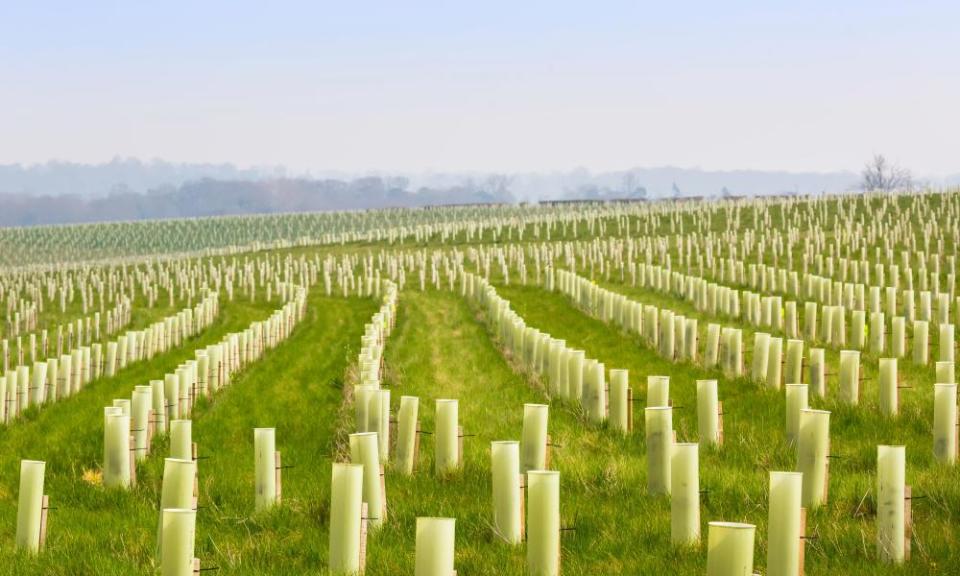Trees bridge the political divide. But Labour’s green policies look most solid

Trees have had an unexpectedly good election, with every major party pledging to plant millions more of them. The exact numbers vary, and some parties seem unsure even what their own target may involve, but a huge national increase in foliage is one of the few policies that bridges the vast political distance between the Greens and the Brexit party.
Related: Tory manifesto mentions climate crisis only 10 times
How this plays out on the ground will be another issue – even if all the promised trees are planted, about a quarter of saplings die long before maturity, and the types of tree and location will be big factors. Local authorities are likely to come in for a big share of the heavy work, whichever party wins, but how the budgets and responsibility for this massive climate-protecting project will be devolved remains opaque in most of the manifestos. Local parks spending may continue to be squeezed, even while national forests are high on the agenda.
A similar vagueness over implementation dogs many of the other less eye-catching green policies proposed across the board, even though the public sector – mainly in the form of local authorities – is likely to be key to delivery. From home insulation to transport, renewable energy to waste and recycling, the infrastructure pledges made by all the major parties will require public sector oversight, spending, workers and planning.
Hospitals, schools and other public buildings are all promised a share of the cash for upgrading and insulating buildings, which are one of the UK’s biggest sources of emissions. By 2030, Labour, the Lib Dems and the Greens would insulate every home, and in most cases other buildings too, while the Conservatives will spend £9.2bn on insulation nationwide.

Electric cars are also a central environmental pledge, with the three biggest parties all targeting a phase-out of diesel and petrol vehicles, and an expansion of charging infrastructure. Restoring and expanding bus routes looms large for Labour, which would electrify all buses for £4bn, and the Lib Dems have pledged £4.8bn to restore local bus routes. The Conservatives promise £4.2bn for local trains, buses and trams.
Waste and recycling have been largely determined by EU directives to date. The Lib Dems want an even tougher recycling target of 70%, and Labour wants producers to take responsibility for the waste they create. The Tories remain vague on whether they would adhere to EU recycling targets post-Brexit, but want to ban the export of plastic waste to developing countries.
Pledges are easy to make, so perhaps the most important question is which party is likely to take its manifesto pledges on the environment seriously in government. An assessment of the main parties’ pledges by Friends of the Earth put Labour at the top, closely followed by the Green party and the Liberal Democrats, all scoring between 30 and 33 out of a possible 45. The Conservatives – whose leader, Boris Johnson, refused to take part in a televised climate debate – scored just 5.5 points.
• Fiona Harvey is a Guardian environment correspondent

 Yahoo News
Yahoo News 